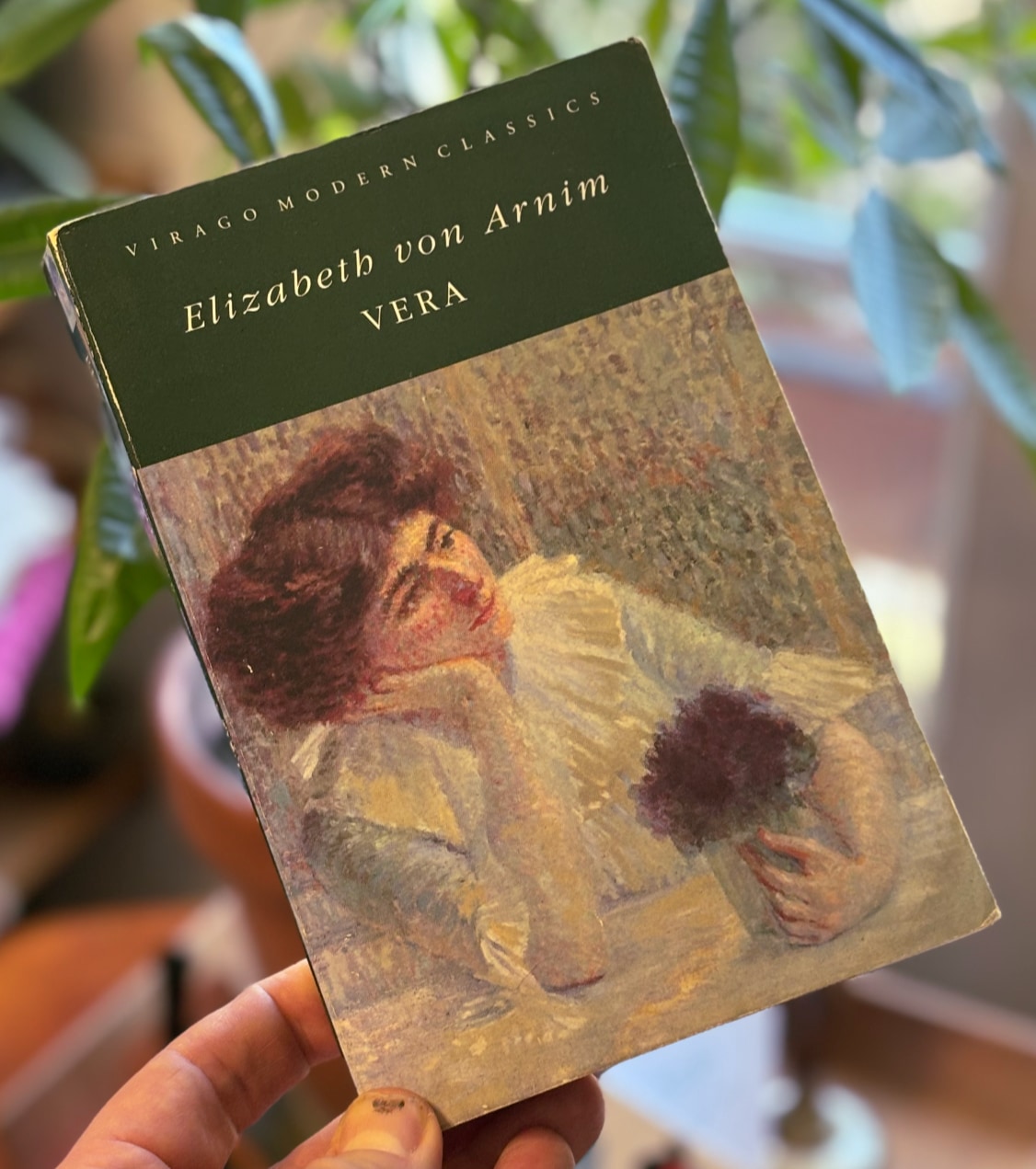Tuesday Book Club: Vera
11 February 2025, Filed in: Psychological Fiction | Gothic Literature | 20th Century Fiction | Classic Women Writers | Book Club | Books About Toxic Relationships
The chilling power of Elizabeth von Arnim

This week’s Tuesday Book Club takes a darker turn with Vera by Elizabeth von Arnim, a psychological thriller often described as a precursor to Rebecca by Daphne du Maurier. While von Arnim is best known for her witty and light-hearted novels like The Enchanted April, Vera reveals a very different side of her writing—one that’s unsettling, haunting, and utterly gripping.
Why Vera?
Published in 1921, Vera is a powerful exploration of manipulation, emotional control and the devastating effects of toxic relationships. The story follows Lucy Entwhistle, a naïve young woman who, while grieving her father’s sudden death, falls under the spell of the charming but controlling Everard Wemyss. After a whirlwind courtship, they marry and Lucy moves into Everard’s house—where the shadow of his late wife, Vera, looms ominously over everything.
Von Arnim masterfully builds a sense of creeping dread as Lucy’s once-idyllic life begins to unravel. What makes Vera so chilling is not the supernatural but the psychological—the slow, almost imperceptible erosion of Lucy’s autonomy as Everard’s true nature emerges.
A timeless psychological study
Though written over a century ago, Vera feels strikingly modern in its depiction of emotional abuse and coercive control. Von Arnim’s keen insight into human psychology makes this a novel that resonates with contemporary readers. It’s a story about power, obsession, and the suffocating nature of love gone wrong—a cautionary tale wrapped in beautifully crafted prose.
Join the conversation
What did you find most haunting about Vera? Was it von Arnim’s slow-building tension, Everard’s chilling character or Lucy’s gradual loss of self?
We’d love to hear your thoughts! Share your impressions, favourite passages or questions using #TuesdayBookClub and #VeraVonArnim on X (formerly Twitter) and Bluesky.